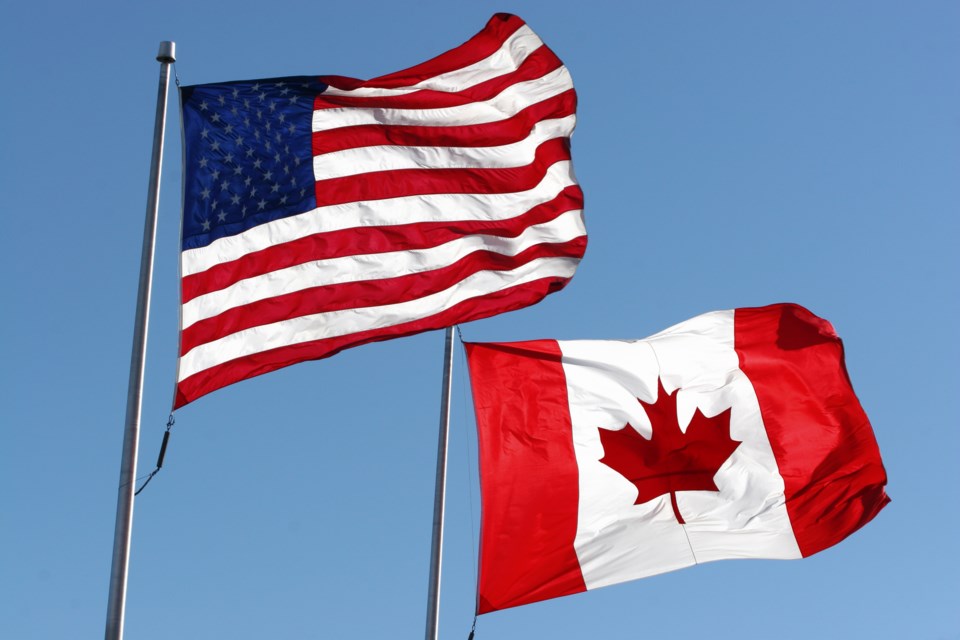Hi, my name is Scott. I’m 34, and I have a hopeless addiction to following politics in countries other than my own.
It’s a problem, but honestly not one I plan to fix anytime soon, especially with so many elections this year.
That said, speaking broadly, there are many Canadians who appear to have the incorrect take on the importance of American politics and how it affects our lives here in Canada.
On one side, many speak and act as though Canada is but a collection of American states and are so personally invested in what’s happening in American politics I suspect they think they get to vote. On the other are folks who insist nothing that happens in the United States is of any importance, and nothing that happens there will affect us here.
It’s not a hot take by any means, but I think it bears repeating as often as possible—especially given the climate—that both of these extremes are not only wrong, but dangerously so.
Starting with those who think American politics are all-encompassing to the degree there are Trump or Biden [scratch that] Harris bumper stickers on Canadian vehicles, frankly, they need to touch grass.
American domestic politics affects us in the trickle-down way financial decisions do: Eventually, but you don’t get a say anyway. And usually just because the politicians closest to us need some campaign inspiration.
American politics is often derided as more of a spectator sport in media, and to anyone who isn’t an American, that’s correct. It is there to be watched, followed (bet on, according to the Brits and the Australians), and analyzed by those who enjoy the sport of it, but nothing more.
Those who hyper-focus on the United States are guilty of importing American politics into Canada. The Liberal Party using the word “weird” to describe Pierre Poilievre on a one-week delay from Democrats is not a victory for progressives in Canada, but an embarrassment that betrays lack of creativity and a belief that everything American can be Canadian. Likewise, culture war-like rhetoric about social issues contained to the United States is completely unhelpful in Canada, and only serves to increase the temperature of discourse while adding nothing.
Those who bemoan the enshittification of Canadian politics because of American influence are typically those most guilty of finding connections and similarities that don’t exist. Canada and the U.S. might look similar and speak the same language (mostly), but we have two very different political systems in place, and similarities are thumbnail deep.
Hyper-focus on the U.S.A. also breeds political doomerism and fatigue. Save that energy for Canada; it needs your attention more than the U.S.A. does.
Over on the other side, those who claim American politics means nothing betray their lack of understanding of Canadian history and its place in the world.
American politics does matter to Canada, because Canada is hemmed in by what is (currently) the world’s sole superpower.
Put simply, on a base level, we ignore them at our peril. So don’t do that.
In the grander scheme of things, however, Canada benefits greatly from the United States imposing its hegemony upon the international community. Why? For starters, this grand international community that Canada exists in and gallivants around acting like it’s more important than it is, is an American, post-Second World War creation. International trade is secured by American power, global markets are linked with American economic fortunes, and the closest thing we have to world peace (read: not the state of things where human life is nasty, brutish and short) is held in place by the order of things set in place by the United States and its allies, of which Canada is one.
It is hilariously naive—and stupid—to believe the United States’ standing in the international community has no effect on Canada.
Canada’s place in the world is secured by its proximity to the U.S.
Look north, to the Northwest Passage where Russia probes Canadian waters. Look west, where vital Canadian trading partners are monstered by China. Look east, where Canadian allies live in safety, buoyed by American military support, left to their devices to underspend on their defence budgets and occasionally dabble in assisting fending off Russian incursions into neighbouring states.
And look inwards: Canada’s own defence budget is below the NATO-required two per cent of GDP, at last measure clocking in at 1.3 per cent.
If the U.S. changes its position on NATO and on the world stage, what does that do to Canada? In short, lots of things, starting with that 1.3 per cent.
So yes, American politics does matter.
So what’s the correct amount of attention to pay to U.S. politics? Probably somewhere between American bumper stickers on Canadian cars, and acknowledging there’s a world past your front door.




